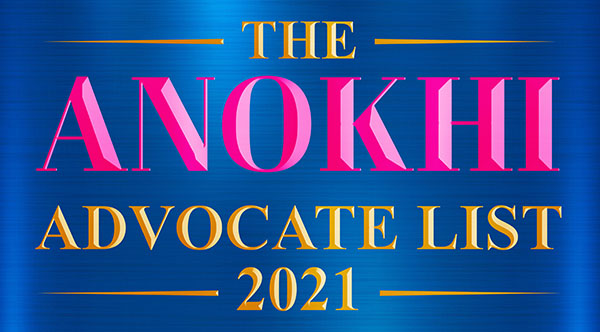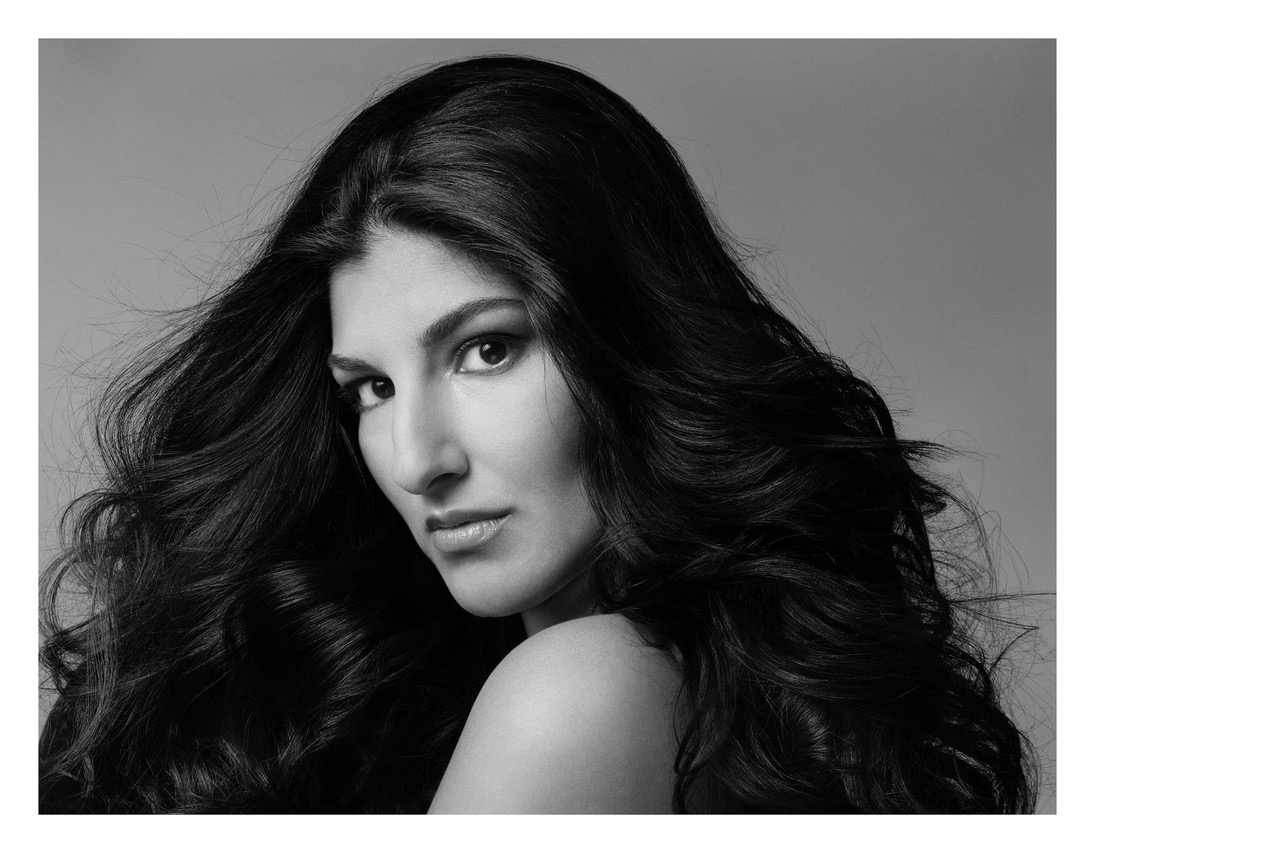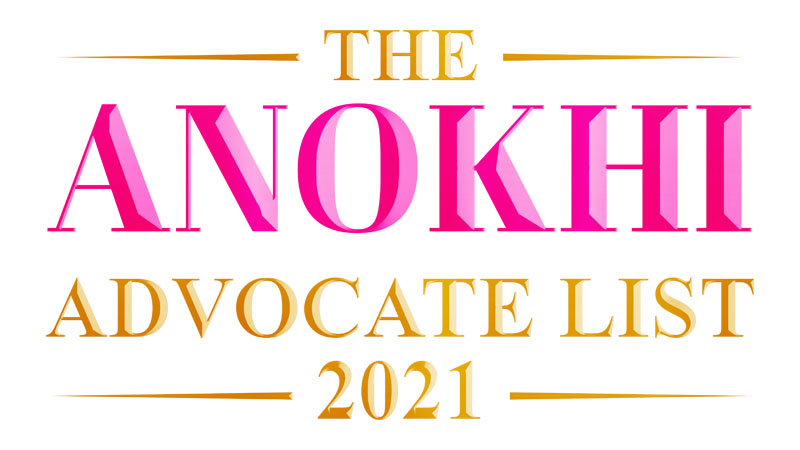Michelle Mama is an award-winning documentary filmmaker and veteran factual producer/director with over 300 of hours of television under her belt. She is a fiercely creative television professional known for her outside-the-box storytelling and her tenacity in delivering the best in factual entertainment. As a director she has the ability to disarm subjects and generate true intimacy with her subjects and as a producer she collaborates to inspire and extract extraordinary work from her team. With a well-worn passport and the confidence of experience, she is as comfortable in a studio control room as she is on location in a war-torn country.
Michelle is the newly minted Executive Producer of Canada’s Drag Race. She is best known for showrunning two seasons of In the Making, an 16 x 30min prime-time documentary series about ground-breaking artists for CBC, as well as writing on the iconic sketch comedy series Baroness Von Sketch Show (IFC/CBC).
In 2020, she produced and directed an 8-part documentary series for Fuse/OutTV called Shine True about Trans and Non-Binary folks discovering themselves that was lauded by The New York Times, The New Yorker and Vogue.
Michelle was nominated by the Academy of Canadian Cinema and Television for a 2020 CSA for Best Direction in a Documentary Series for her “Christopher House” episode of In the Making.
Michelle just wrapped series directing History Channel/Netflix series Lost Car Rescue, and she continues to work on the scripted series adaptation of the critically acclaimed novel Bottle Rocket Hearts and a documentary feature on the queer rock outlaw Carole Pope of Rough Trade.
Raj Girn: Welcome to The ANOKHI UNCENSORED Show, guys. I’m your host Raj Girn, and I’m thrilled to be chatting with Canadian director and producer Michelle Mama. about her incredible contribution to advocacy for the LGBTQIA+ community. Michelle is an internationally renowned television and film director and producer and noted for her critically acclaimed television series Sign True, which was nominated for the Critics Choice Real TV Awards in 2020. Shine True is a docu-series celebrating the Trans and gender non-conforming community by helping them overcome dysphoria and getting them to a place where they can freely and finally present the way they feel. Currently, Michelle is the executive producer for Canada’s Drag Race and is a proud member of the LGBTQIA+ community and it’s because of her advocacy to center voices from her community that she has made The ANOKHI ADVOCATE List 2021 in commemoration of the 19th anniversary of ANOKH LIFE’s service to the global South Asian community.
You are such a rock star, Michelle. Thank you so much for agreeing to be on the show and give us your insights as well as what you know. Congratulations for making the list this year.
Michelle Mama: Thank you so much. I’m honored, truly, truly honored. What a what a list and what great company. Thank you so, so much.
RG: You are absolutely welcome, sweetheart. Well, you know, I want to start by just asking you a very simple question What does advocacy mean to you?
MM: You know, advocacy is standing up for. I think before I was an LGBTQIA+— it keeps changing —advocate I had to wrestle with myself and you know who I am and and really come to terms with the fact that I’m a part of that community. And I think a big part, the largest part of making that process simple for me was the support I had of my family, honestly. I feel very fortunate as a Parsi. My family is from Pakistan and India. Parsis are Zoroastrians. We come from a very old, ancient tradition. And my parents are immigrants to Canada. And I think I spent 10 years of my life truly believing that if I told my mother that I was queer or my father — that I would I would kill them. That they would have a heart attack and die on the spot. And that was truly — as smart as I am —a real belief that I had. And it’s a credit to them that they took their time. Of course, there’s all kinds of cultural wrapping their head around things and disappointment. But because I had the support of them, it gave me a strong foundation to then be a strong advocate for others because I know that not everybody is that lucky. A really important part of the work that I do is to try and help, especially where the intersection of queerness and people of colour happens, how it’s like to move through what is a really difficult process for some, in whatever way I can.
RG: Absolutely. It’s just it’s layers upon layers when you kind of look at that intersection. And I feel so blessed and honored that you are coming on the show to help those people that are still stuck at the intersection and keep revolving back. Is that cyclical? We keep coming back to kind of those areas in our lives that we feel that we’ve had the hardest journeys. So I want to ask you this, I kind of feel that you’ve answered this, but I want you to encapsulate it. Why is advocacy so important to you?
MM: Because community is so important to me, I know that sometimes your birth family is not going to give you what you need. And I think as South Asians, as people from the Diaspora, it’s so ingrained in us that our birth family is everything and everything is family. But sometimes the family sort of converges around you when you’re a queer person, [it’s] your queer family, or you’re sometimes referred to as your ‘chosen family’. Those are the people who really buoy you up and save you in times of what is emotional and mental crisis actually, a coming out process is a crisis. I have friends who I consider as close as blood relatives, people I’ve known for 25 years, people who knew me before, during and after that process, and those people to me I would take a bullet for them. They’re my family, just like a blood family. I have an example of a young fellow who I mentor from a Syrian family. When they found out he was queer, they, beat the stuffing out of him and he had to escape from his family’s house in Mississauga with no shoes on in the middle of winter, and go to a shelter. And they haven’t spoken to him since. I mean, look at the difference. I’ve been so fortunate. So now that person, knows that he’s got me and he’s got this whole family of queer South Asians and just queers and just South Asians — people who love and respect him. And that is the most important thing. Just to know that you’re not alone. Just to know that there’s a community and any time I get a message on Facebook or Instagram — the most incredible thing is my mother gets these messages now from mothers of kids who are struggling or they seem to be wanting to come out and they say, ‘Oh Nelofer, what should I do?’, my mother’s become an advocate herself. She helps these moms through what she went through. It takes a village to advance and evolve.
RG: You know, you’re sharing this and I’m smiling because, you know, this is this is what we hope for, right? This is this is what we hope we can accomplish to be able to just make it that much easier for the next generation. You know, for not just the next generation, I want to kind of correct myself there, but just also for the generations that already are. You share this beautiful story about yourself and your mother. And I really hope that people who are watching, listening and reading this everywhere.
RG: I feel that you’ve shared a bit of your personal advocacy philosophy, but can you encapsulate it for us here?
MM: I think it’s that it’s very simple, we just have to take care of and look after each other and treat others the way you want to be treated. And in the professional world, which is what I do, a lot of mentoring for Queer and Non-Binary South Asian youth is to send the elevator back down. You know, success means nothing if you can’t pull other people up with you. Whatever challenges people are facing, being able to guide and be some sort of anchor in whatever way I can. I think ultimately what it comes down to [is] service. I’ve learned that from my community, from the past community, from my family. It’s all about giving back and being in service to others.
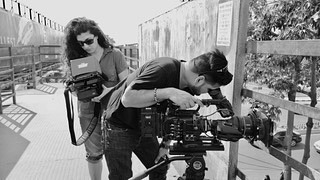
RG: Absolutely. And it’s a big part of, your particular subsets’ culture as well. Is the give back piece, right? How does what you believe in translate over into your professional journey? Because obviously, there’s a massive kind of component of what you do, truly is in everything you just finished talking about.
MM: In the last series, the one that we’re talking about Shine True, which is basically a make over show, but almost a Trojan horse because it’s actually a documentary series about transformation and change. And what we did was we had Trans and Non-Binary youth who know who they are, but they haven’t been socialized female or male. They’ve been socialized in the opposite way, and they don’t know how to dress or put on makeup or in the opposite case, once they’ve had a top surgery, how to dress like a man, how to buy a suit. And so essentially, it was about helping people present who they really are finally, for the first time. You have two Trans hosts. And when putting the team together, it was a small, cheap and cheerful affair. There wasn’t a lot of us. I was driving the van, it was a very small shop, a very underfunded show. But we managed to pull off miracles and it was really, really important to me that when we were with these subjects who, by the way, we cast an entirely all POC cast every one of the eight subjects that we profiled as a person of color.
Every single one of my crew was a queer person. And so I think that the reason we were able to achieve the kind of intimacy and trust that we were in the short period of time that we had with the budget, we had three days or whatever it is because, there’s not that sense of otherness when you’re surrounded by other queer people. There’s a shorthand. We’ve all been through our own coming out process, we’ve all been through our own traumas and stress, and we’ve all had our family stuff. And so there’s already an intimacy inherent. And then having as many people of color too on the crew, wherever it was possible, so people are surrounded with sameness and can feel safe. And I think this industry is changing fast, but it’s still full of really sweet, lovely guys called Mike and Dave with baseball caps. You know who have cottages and two and a half kids. And they’re lovely guys I’ve worked with for over 20 years, but that’s not the person I want to put in front of a very vulnerable Trans person of colour whose parents won’t accept them. There are all kinds of layers about seeing and being seen when you’re capturing someone’s story. It can feel exploitative if it’s not done correctly. And it was really, really important in every step of the way to make sure people were comfortable to stop if they weren’t, and to really impress upon them that this is about your growth and journey. It’s not about ‘gotcha tv’, where we’re trying to make you cry or capture your pain. It’s about capturing the joy and and inspiring other kids who were watching to be brave.
RG: Michelle, can you share why you feel that, you know, people should incorporate some sort of a sense of advocacy into their lives? I mean, with some people, it’s it’s a personal journey, others it’s a professional journey, yet others still, it’s a spiritual journey. And then all of the above in some sort of cocktail. Can you share that?
MM: I think it’s an all of the above thing for me, because I chose not to have kids. Parents can’t do it all. And you know I’m the sort of the cool aunt or friend of a friend or whatever, that you can sort of tell things to, that you can’t tell your parents. That’s completely open that you feel safe with. And I think the antie-role is a very important role, especially in South Asian culture. If I can be the cool brown auntie that people call because they know that I’m queer and they’re scared to tell their mom, my job here is done. I think just being accessible, open public about being a queer person myself. People are already magnetized to you because they feel like, ‘Oh gosh, you’re someone I can talk to’. So I mean, as long as I’m being public and open and giving of myself as much as possible and making people understand that they’re safe with me, then that’s that’s the best I can do.
RG: Absolutely. Let’s talk about how important advocacy has been in this last year, especially what have you seen that has stood out in, you know, what’s happening in our world today that you feel is changing to meet people where they’re at rather than the, you know, the the generations, the hundreds upon hundreds of years of conditioning that we have been pushed into these boxes of these preconceived ideologies that, you know, one size fits all. What are your thoughts about what you’ve seen happening that stood out for you this past year in that regard specifically?
MM: I mean, when you say this past year, you know, unfortunately, my head just goes to COVID, especially right now. And when you think about accessibility, people with whom English isn’t their first language and they’re navigating all these byzantine, bizarre ways to try to find a vaccine or a booster. I can’t tell you how many times someone’s called me, ‘someone’s uncle in Markham is looking for this or that. Can you help?’ I mean, accessibility is so important and and when people are designing these systems, you know, the Shoppers Drug Mart antigen test systems or the whatever, it got to be accessible to people who are first generation Canadian or recently immigrated, whose English isn’t the first language. I really do think people of colour or people who don’t have forty dollars to get a COVID test at Shoppers Drug Mart, people who don’t have the internet to order tests. And then when they do, they don’t have $150 dollars to spend on a kit. I mean, there’s socioeconomic challenges, there are challenges with access and language. There are so many things that come to mind where all of us are in our little bubbles and scared and stressed. But then to really never lose sight of the fact that there’s people in tents, there are people who just arrived from Afghanistan and don’t have a computer to go on and book an appointment. So always keep those people in mind when we’re really self-involved and taking care of ourselves during a pandemic and to really remember and trying to do whatever you can donate rapid tests, try to help people book appointments — aunties, grannies, you know, all that stuff. Just trying to take care of people as much as possible and use whatever skills you have to help people who who don’t have those skills.
RG: Absolutely. You know, it’s interesting that you say that because, you know, the cousin to advocacy is is considered slacktivism. So, you know, that’s the whole notion of creating and sharing a hashtag that gives a person this idea that they are contributing to some cause by sharing the hashtag. So I’ve got to ask you this, what do you feel are the pros and cons of slacktivism?
MM: It’s good to have a constant reminder of things, but essentially if it’s just going to be a token or it’s just going to be a hashtag, it’s not going to do anything. All it is is performative. It’s you saying, ‘I’m a good person, everyone. Look, I’m sharing this box, I’m sharing this hashtag’, whatever. But actually, what are you doing? It’s really all about you. And that’s the problem with social media. It’s all about image profile. It’s all about you telegraphing to the people on the other side, ‘I’m this kind of person’. ‘I’m left wing’, ‘I’m an advocate’, ‘I am an activist’. And like you said, slacktivism putting a hashtag on your Instagram is not activism. You have to get out there and you have to sort of do the work, whatever that means. For me, it means mentoring young kids coming up in this industry and trying to make sure that they get the breaks that they deserve. Making sure that when I’m working on a queer show — which the last two have been and the one I did before that in In The Making — also had a lot of queer subjects that were really sensitive to that stuff that were not going out into the field with a bunch of like straight white people to shoot queer content. It doesn’t mean that we have to be aligning the storytellers with the story. I mean, for me, slacktivism is going to happen, it’s the world that we live in. Everyone is performing. I’m less impressed with a hashtag and I’m more impressed with a photo fo you giving food at a food bank, or out at the protest, or doing the work. And you know what? Sometimes you don’t have time to post because you’re busy doing the work. That’s the real work. The people who are really working probably aren’t posting, right?
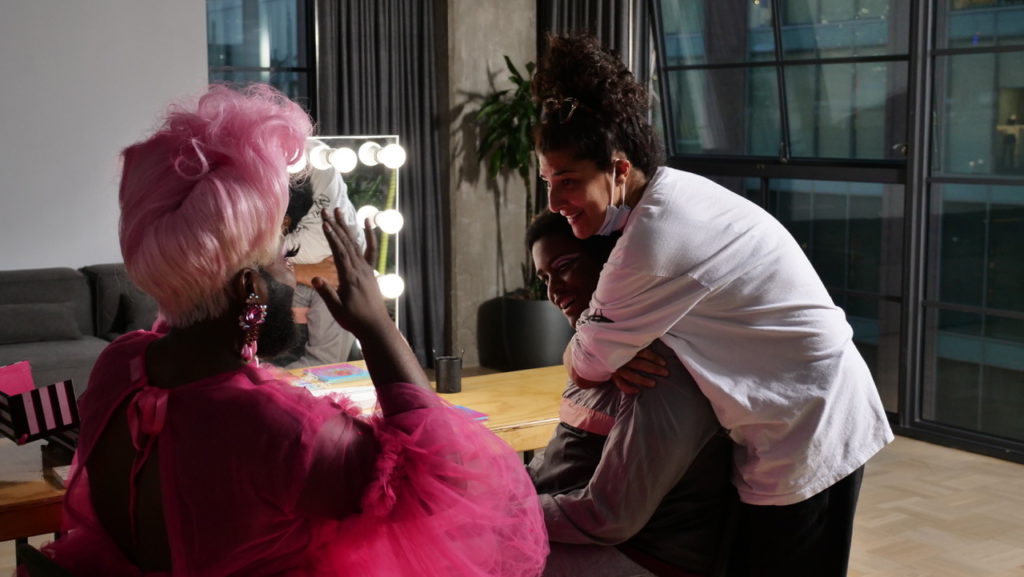
RG: I’m so on your page. And you know, when you say that, it’s bringing another thought to my mind that I wanted to kind of share with you a little bit. Michelle, you have chosen specifically media as your form to put out your advocacy. Can you share why?
MM: I’ve been in this film and television business for 25 years. And when I started off, I was just a person making television. I was a kid. I started off driving people and getting people sandwiches and coffee, and I worked my way up brick by brick. production, assistant production coordinator, production manager, over all these years. And now I’m a producer, director, executive producer. And I think what I’ve learned is, it’s been in the last couple of years, I’ve been referred to as a person of colour or as an LGBTQ advocate. And it’s interesting because it’s just what I’ve been doing naturally. And I think when you were doing ABC’s advocacy work, it’s got to be something that’s personal to you and it’s going to feel organic. It’s got to be part of what you do. It’s got to be a practice. It can’t just be a one-off. Every show that I go on, I make sure that there’s some kind of mentorship piece, that there’s some kind of way for me to bring in new talent, fresh talent, if they’re not trained to help mentor and train them and get them where they need to go. I wish someone had done it for me. And in my day, there was no sort of advantage to being South Asian or POC. You just had to elbow and hustled the way everyone else did. So that we’ve got this crack of the door open and there’s people actively seeking people of color, queer people, diversity and all. It’s a gold rush, kind of. You want the best talent. Everyone’s phone is ringing. And I think it’s just really, really important that people, when they get those calls they don’t get overwhelmed and that they are ready for the challenge when it arises. It’s that opportunity and readiness juncture. Just want people to be ready when the calls come in and help in any way you can.
RG: And this is the time, right? Michelle is just it seems like every iteration of identity is starting to, you know, get some sort of some semblance of our lives.
MM; I’m a producer, and now a BIPOC producer, so my phone’s ringing more and it’s like, Sure. But what do I do with that advantage? What am I going to do with that? With that privilege, with the timing? I’m in a very advantageous position because I’ve done my career and I’ve reached a certain point and now there’s an advantage to my identities. OK, so now how am I going to use that? And how I’m going to leverage it for other people and make other people be able to pull other people up there? Some incredible organizations, BIPOC film and television, there’s so many where people are sort of gathering and saying ‘Okay, how can we help each other out?’ And in terms of queerness, you know, it’s very, very difficult for some people to be both South Asian or diaspora and queer. It’s very hard because we have been conditioned. We have been raised a certain way. We come from ancient cultures with thousands and thousands of years of doctrine. I was born in Canada, I was raised here and that’s working within those two identities, the ancient and the modern, and the old world in the new world. The cultural whiplash, essentially. It’s so important that we that we take our time. We’re gentle and kind to ourselves that there’s no shame around our journey because, you know, everybody’s family and everybody’s experience is different. And sometimes your blood family will disappoint you. And and that’s OK because you’ll find family in other ways.
But I think it’s really especially hard for South Asians because we’re so family-centric. Also, I think it’s really hard for South Asian folks to understand queerness and have a template for maybe what is a gay man, because they’ve seen hijras or because they understand from popular media, you know what a gay man is, and they have some archaic, some stereotype of what a gay man as know, you know, feminine and squishy or whatever. But you know, it was hardest for my mom to understand about me was, ‘but you don’t look gay’, ‘you don’t seem gay’. And so undoing all those stereotypes about what is gay, it’s not, you know, a woman with a buzzed head in combat boots, necessarily, although I have had combat boots, and a gay man is not necessarily going to look like a hijra. There’s just the full spectrum and trying to sort of bring our community closer to understanding that it’s a spectrum. You can’t judge a book by its cover. We as people who struggle to be respected and treated well in this world and often times, should be the people to persecute other people for who they are and speaking their truth. You know, I mean, things that just seems like common sense.
Everyone is performing. I’m less impressed with a hashtag and I’m more impressed with a photo fo you giving food at a food bank, or out at the protest, or doing the work. And you know what? Sometimes you don’t have time to post because you’re busy doing the work. That’s the real work.
RG: Common sense, But yeah, there’s a lot of other things that kind of factor into that.
MM: There’s a lot of toxic masculinity here. There’s a lot of not understanding. And I think a lot of it too has to do with education and it has to do with exposure like, of course, you think a Trans person is not whatever, you’ve got no frame of reference, but then you write one and you’re like, ‘Oh, OK’. And that’s what I try to do is if no one knows a gay person or a lesbian or a queer person, and then they meet me and they’re like, ‘Oh!’. Even just being yourself and being out about it makes a difference. I know it’s made a difference for my family’s friends, for the extended friends to understand and know that I am out and proud that I am queer. Just that in itself, it’s an advocacy for the people who come next time we’re here. I’m here. It’s OK. I’m out. I’m alive. Things are fine. Me and my mom are talking, everything’s good. My girlfriend came for Christmas. It’s all good. You’re like in a living embodiment of an ‘it gets better’ campaign. And sometimes for communities like ours, that’s what you need to do. Just be and be available to anybody who needs you.
RG: Absolutely. You know, those people that are sitting at that, you know, intersection that you talked about earlier. What would you say to them?
MM: I would say that you’ve got a more interesting path and journey than other people do. It’s going to make you much more interesting person and it’s a much more challenging journey, but it’s totally worth it. And I’m actually, kind of envious really of that. The Gen Zs and the kids coming up now because the world has has advanced so much that the conversation around queerness — I mean, marriage is legal in the US. Who would have thought that 20 years ago? I think it’s just sort of reminding people that the thing that is the monkey on your back, that big, scary thing about coming out or whatever, the world is much more hospitable to you. My real message to people is sometimes we underestimate our families. Sometimes we underestimate how sophisticated our families are and how maybe they already know things that you don’t think they know. And maybe they love you. And that’s the most important thing. And with the caveat that if that’s not the case, there will be a community here like a safety net. The queer community love all comers and we take care of everybody within our field. So it’s it’s not easy, but nothing rewarding is. And it’s much more important that you’re living your truth than hiding it, especially in 2022.
RG: When there are so many resources and so many answers when you see the many support systems.
MM: No one’s very easy. It’s hard. It’s the hardest thing. Yeah, but the rewards on the other side of that are immense.
RG: Absolutely. You know, can you believe that we’ve come to the end of our conversation? I literally am getting ready to close off and you know, it begs wanting to speak to you in a much more deeper manner. You know, on another occasion, Michelle, I really do hope that I get the opportunity to do that with you. There are so many questions I have for you inside, so let’s definitely do that. Before I let you go, I want to ask you this. With all that you’ve seen and experienced, what advice would you give to everyone watching, listening and reading this who want to be more proactive in a cause that they believe in, but they just actually don’t know how to get up and action it? Like, what would you say to them?
MM: What I would say is actually that the trick or the key or the secret of activism and advocacy is you get more from it than you put in. There is a feedback loop when you do something for others that feels really good and continues, it’s like exercise. It’s like a muscle. Just do the first thing. Just put one foot in front of the other. Just do one thing, a little thing and attainable thing and not a hashtag, you know. See what you can do. Look around you. I think all of us are busy looking at our phones. Look outside of yourself, pay attention, put your antenna up. See if there’s somebody in your life who might be struggling. It could just be a one-on-one thing that’s advocacy too. If you if you know you hear, overhear a conversation about someone’s niece or nephew, may or may not be gay, and there’s all kinds of consternation jump in. Voice it. Tell people.
People make it easier because, as we all know, with South Asians, it’s so much about what are other people going to think? What are other people going to think? It doesn’t matter what other people think, and it’s such a hard thing to undo for us. And I think that’s always the hardest thing with the parents. They’re going to love you no matter what I mean, with obviously some exceptions. It’s more like, “Aree what is everybody going to think?’ And it’s like, ‘well, let’s let’s interrogate that for a second’. What difference does it make? We from these tribal communities. We come from these close-knit communities where everybody is watching everybody else. Maybe what’s much more important for mental health, physical health and just happiness is to not worry so much about what other people think and just worry about your truth and just do that. And I think activism and advocacy can be on a very, very small scale. Just look out looking after one person reaching out to one person and telling them, ‘hey, I support you no matter what’. I mean, I had an uncle call me after my mom told him and he called me. I remember I was sitting in my car and he just [said] ‘hey, listen, Mitch, I just want to tell you, I love you no matter what. I love you and I don’t care who you love and you’re near the top on my books’ and whatever, whatever. And just getting that call like [that] seems like nothing. You make a phone call, but it changes somebody’s day and life. And 15 years later, I can still remember it.
So it’s just little things. Let people know that they’re loved. Let people know that they’re supported. We have a mental health crisis right now and queer people, people of colour are much are affected on much higher levels [with] levels of self-harm, suicide, suicidal ideation and depression and all kinds of stuff. And the littlest gesture towards somebody who’s struggling makes so much of a difference. It really does.
RG: Amen to that. You know, I really, really hope that whatever your journey is, Michelle, that you just continue just living in your truth because it’s very inspirational for those people out there who generally tend to just kind of watch and listen and not action. Hopefully, you know, listening to this, reading it, you know, watching it wherever they are in the world, that something just kind of sparks a thought to them that maybe my contribution is going to be something that’s going to change someone’s life. And that’s all we need to do in our lives.
MM: And it’s just important. Here I am. I’m a queer woman. I’m normal. I don’t have forms. I don’t have scales, I’m just a person who loves women, And there’s lots of us. And let’s just demystify all of this. And we’re such smart, educated, sophisticated people globally. It would be a shame for this one thing, this cultural thing to hold us back. I think that if we get over this hump hopefully in the next 20 years and really can accept — there’s going to be people who never accept it, much, much older people and and people who are very close-minded — but those of us who are in the diaspora, those of us who are not sitting in in villages in India and places where it’s really, really hard, I think it’s just really important to push the needle. As much as you can, wherever you can, whenever you can.
RG: Absolutely. Amen to that and thank you so, so much.
MM: Thank you so much for this honour. I’m truly, truly honoured. Thank you so much.
